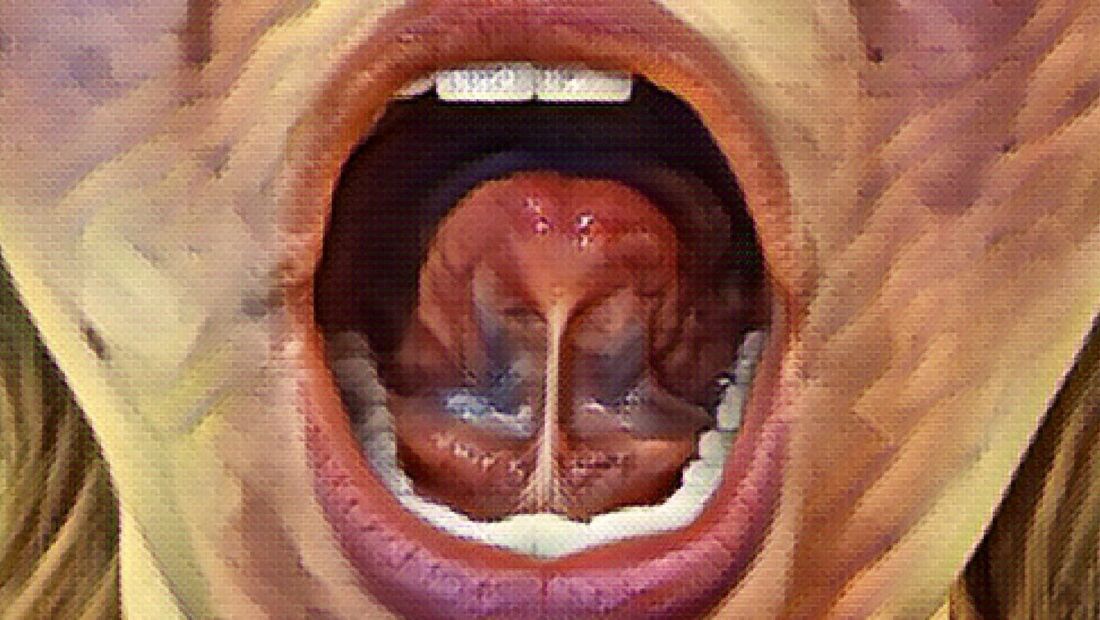|
Introduction: Tongue tie, or ankyloglossia, is a condition characterized by a shortened lingual frenum, which restricts the movement of the tongue. Often overlooked and undiagnosed, tongue tie can have significant consequences on a person's growth, development, and overall health. As a dental hygienist with expertise in orofacial myology, I have witnessed the profound effects of untreated tongue ties and the benefits of intervention. In this blog post, we will delve into the multifaceted impact of tongue tie, ranging from breastfeeding difficulties in infancy to speech challenges, sleep disruptions, and associated issues throughout life. We will also explore the role of myofunctional therapy in addressing tongue tie and promoting optimal health and well-being. Difficulty Nursing as an Infant: Tongue tie can be a significant hurdle when it comes to successful breastfeeding. The limited mobility caused by a tongue tie can exhaust the infant while nursing, leading to inadequate milk intake. This not only affects the baby's growth but can also impact the mother's milk supply and increase the risk of issues such as mastitis. Proper assessment and treatment of tongue tie can help alleviate breastfeeding challenges and promote a healthier nursing experience for both mother and baby. Speech Difficulties: Restricted tongue mobility associated with tongue tie can contribute to speech difficulties in both children and adults. The impaired movement, shape, and placement of the tongue affect articulation and speech clarity. Many individuals with a tongue tie require speech therapy, yet struggle to overcome their speech challenges fully. Early identification and intervention can help improve tongue function and enhance speech outcomes. Picky Eating: A tongue tie can influence eating patterns and contribute to picky eating behaviors. Limited tongue mobility may make it challenging for individuals to manipulate food in their mouths, affecting chewing and swallowing. Difficulties in moving the tongue to different areas of the mouth can lead to aversions to certain textures or difficulty managing different food consistencies. Treating tongue tie can positively impact oral function, promoting a more diverse and nutritious diet. Clenching and Grinding Teeth: Tongue tie-related muscle imbalances can lead to clenching and grinding of teeth, known as bruxism. The altered tongue posture and muscle dynamics result in excessive muscle tension, causing teeth grinding during sleep or periods of stress. When the tongue is restricted and not able to rest fully against the palate, it may fall back into the airway during sleep which can lead to grinding as the body's way to try an open the airway. Treating tongue tie and addressing associated muscle imbalances may help reduce bruxism and alleviate related symptoms. Poor Sleep: A tongue tie can interfere with proper breathing patterns during sleep, contributing to sleep-disordered breathing conditions such as snoring, sleep apnea, and mouth breathing. These disturbances affect the quality and restfulness of sleep, leading to daytime fatigue, irritability, and poor concentration. Identifying and addressing tongue tie can improve airflow, promote nasal breathing, and support healthier sleep patterns. Mouth Breathing: The restriction caused by tongue tie may lead to compensatory mouth breathing. Mouth breathing can have detrimental effects on oral health, facial development, and overall well-being. It can result in dry mouth, increased risk of dental decay, altered facial growth patterns, and reduced oxygenation. Treating tongue tie and promoting nasal breathing helps restore proper oral function and encourages healthier breathing habits. Digestive Issues: A tongue tie can impact digestion and gastrointestinal function. Inadequate tongue movement affects chewing efficiency and can impair the initiation of the swallowing process. This can contribute to digestive problems such as acid reflux, bloating, and difficulty with food passage through the digestive tract. Addressing tongue tie and improving oral function can positively impact digestive health. Headaches and Neck and Shoulder Tension: The altered muscle dynamics and compensatory muscle patterns resulting from tongue tie can cause chronic headaches and increased tension in the neck and shoulder muscles. The strain on the muscles supporting the head, neck, and shoulders can lead to recurring headaches and muscular discomfort. The constant muscle tension may trigger tension headaches or migraines and contribute to neck and shoulder pain. By releasing a tongue tie, combined with myofunctional therapy, which focuses on restoring proper tongue posture and promoting balanced muscle activity, individuals may experience relief from headaches and reduced muscle tension. Jaw Pain: A tongue tie can contribute to jaw pain and temporomandibular joint (TMJ) disorders. The restricted tongue posture and altered muscle dynamics can affect the alignment and function of the jaw. Individuals with tongue tie may experience jaw pain, difficulty in opening or closing their mouths fully, clicking or popping sounds in the jaw joint, and even lockjaw. Treating a tongue tie and addressing associated muscular imbalances can help alleviate jaw pain and promote proper jaw function. Poor Posture: A tongue tie can impact overall posture. The tongue plays a crucial role in maintaining proper head and neck posture, as it helps support the alignment of the craniofacial structures. When tongue mobility is compromised, individuals may exhibit forward head posture, rounded shoulders, and an altered alignment of the spine. Addressing a tongue tie can contribute to improved posture and overall musculoskeletal health. Chronic Ear Infections: A tongue tie can be associated with an increased risk of chronic ear infections, particularly in children. The restricted tongue movement and altered muscle function can affect the Eustachian tube's ability to drain fluid from the middle ear properly. This can result in a buildup of fluid, leading to recurrent infections and potential hearing problems. Identifying and treating tongue tie can help address the underlying cause of chronic ear infections and reduce their occurrence. Crowded Teeth: A tongue tie can contribute to dental crowding and malocclusion. During the growth and developmental years, proper tongue posture against the palate is crucial in stimulating the jaws to grow wider and forward. This means more room for the adult teeth to fit and more airway space. The tongue also exerts natural pressure on the teeth during swallowing and rest, helping to guide their proper alignment. However, when tongue mobility is restricted, this pressure is diminished, and the teeth may shift and become crowded. Treating a tongue tie and improving oral function through myofunctional therapy can aid in maintaining proper dental alignment and reducing the need for orthodontic interventions. Conclusion: A tongue tie, though often overlooked, can have a significant impact on various aspects of an individual's health and well-being. From difficulties in nursing as infants to speech challenges, sleep disruptions, and associated issues throughout life, the consequences of untreated tongue tie can be far-reaching. Fortunately, myofunctional therapy provides a comprehensive approach to assessing and treating tongue tie, focusing on improving oral function, promoting proper muscle balance, and addressing the associated complications. If you or a loved one suspect the presence of a tongue tie or experience any of the related symptoms, consult with a healthcare professional experienced in orofacial myology for a comprehensive evaluation and personalized treatment plan. By addressing the impact of tongue tie and its associated complications, we can unlock a healthier, and happier life for individuals of all ages.
1 Comment
Did you know that the resting position of your tongue has a significant impact on your health and appearance? Proper oral rest posture, where the tongue rests against the roof of the mouth with lips sealed and teeth slightly apart, promotes healthy nasal breathing, supports facial muscle harmony, and influences the development of jaws and teeth.
During childhood, maintaining correct tongue posture helps drive forward growth of the upper jaw, resulting in a wider dental arch, higher cheekbones, and a more defined jawline. However, factors like mouth breathing, tongue ties, and sucking habits can lead to incorrect tongue posture. Seeking guidance from a Myofunctional Therapist can help address these issues and restore proper tongue posture, supporting overall well-being. Remember to keep your tongue up, lips closed, and breathe through your nose for optimal health. Be well! |
AuthorAuthor: Andrea Melnyk, RDH, BSc, COM Archives |


 RSS Feed
RSS Feed